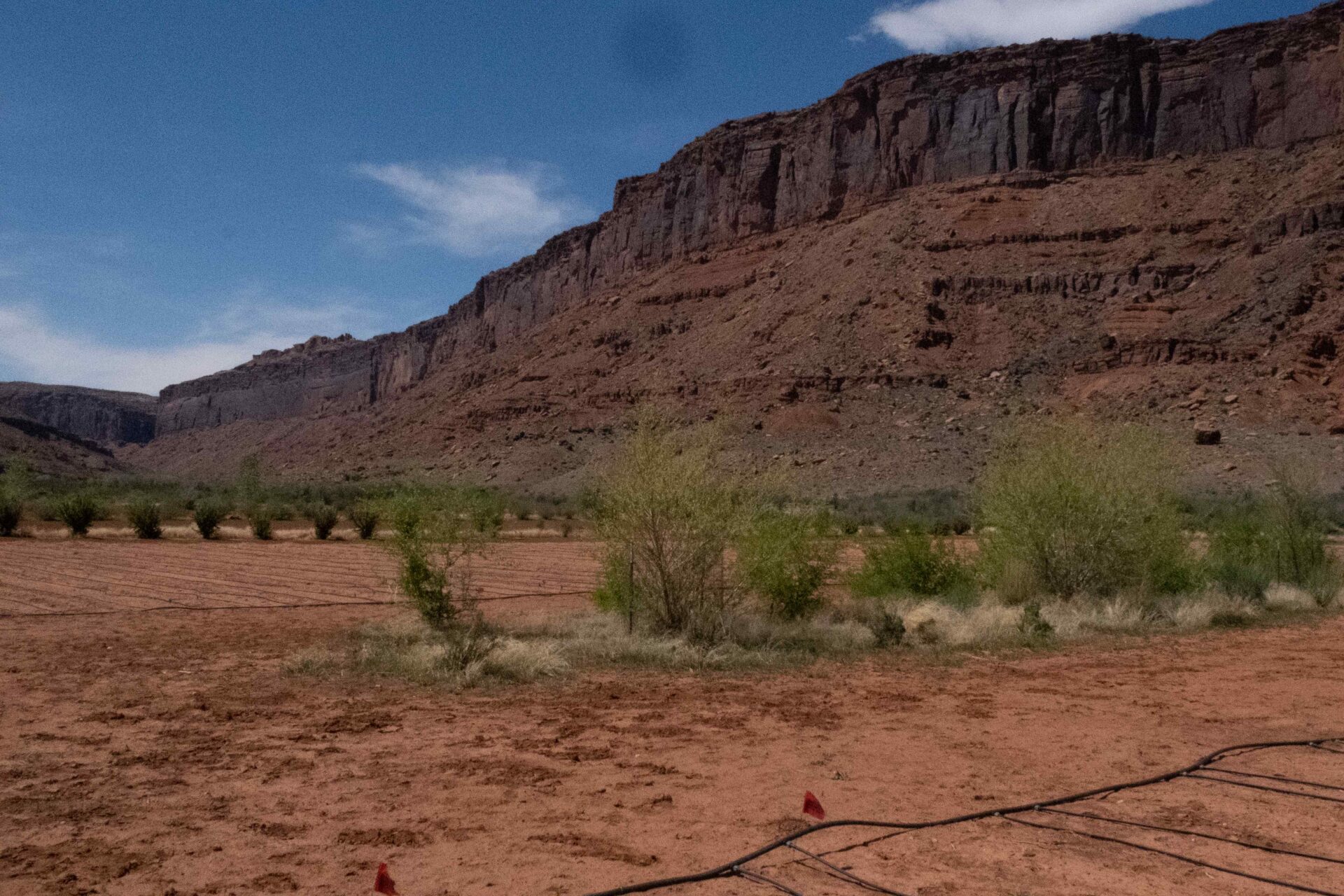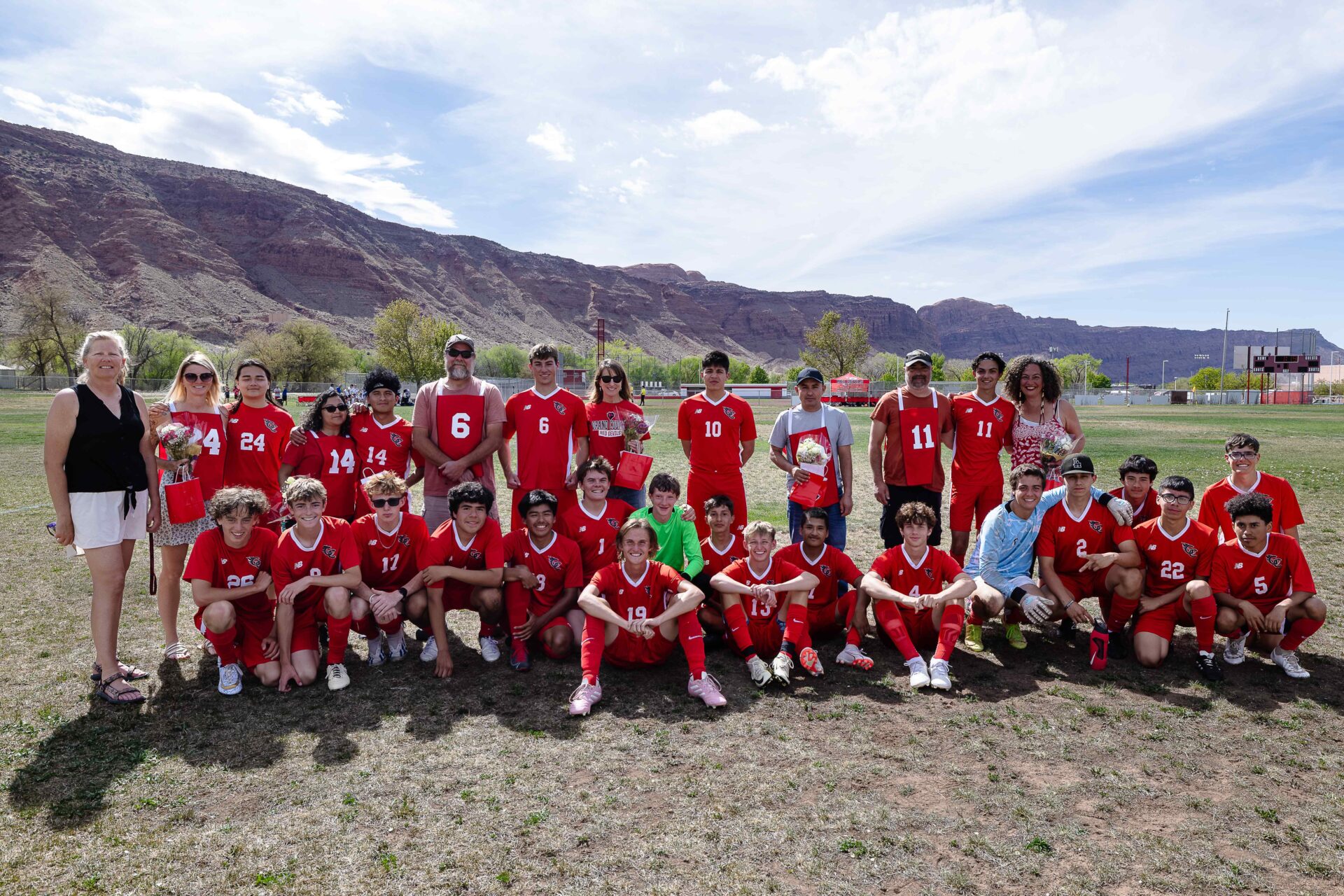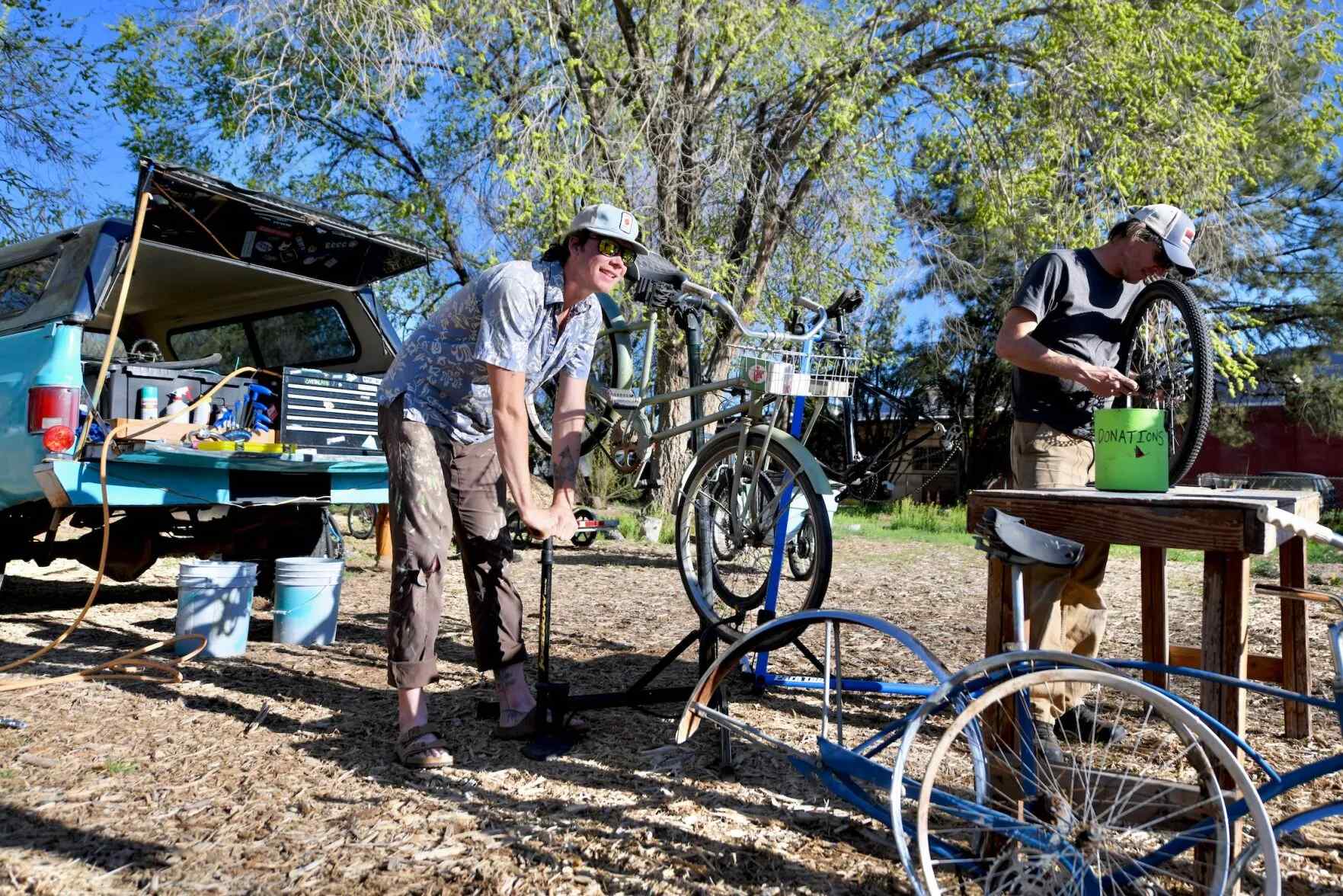The library wants people to do more than read books. They also want people to talk about the books they read.
This year the Moab Reads book for discussion is “The Last Myth: What the Rise in Apocalyptic Thinking Tells Us About America”, authored by Moab writers Mathew Gross and Mel Gilles.
The Grand County Public Library has already held two discussions: one at the main library in town and the other at the branch in Castle Valley.
This Friday, Moab authors Mathew Gross and Mel Gilles will visit about the book with Christy Williams, KZMU program director, as well as take questions from the audience at Star Hall.
“The Last Myth” explains why apocalyptic beliefs are surging within the American mainstream today. Tracing the development of our expectation of the end of the world from the beginnings of history through the modern era, and examining the global challenges facing America today, Gross and Gilles combine history, current events, and psychological and cultural analysis to reveal the profound influence of apocalyptic thinking on America’s past, present, and future.
“The book was selected as the 2012 Moab Reads book selection because we had excellent attendance at the book release program at the Library in the spring of 2012,” said Adrea Lund, head of adult services at the Grand County Public Library. “The Last Myth” is a thought provoking book on a very timely subject and I found the book’s summary of the history of apocalyptic thinking fascinating.
Seventeen people showed up for the Dec. 14 discussion at the main library.
Lund said the discussion was “lively and interesting.”
“Many participants agreed with the authors’ premise that ‘one single thought unites all Americans in these fiercely partisan times: the belief that the American way of life is heading rapidly toward the edge of a cliff.’ Other participants expressed their opinion that apocalyptic thought does not play a significant role in the day to day life of themselves or their family members,” Lund said.
Gross and Gilles had a bit of a surprise as they began research on the book.
“Like many people, we initially accepted the idea that a belief in the end of the world was a universal trait – part of the human condition,” Gross said. “But like every cultural idea that we now accept as true, there is in fact a historical beginning to apocalyptic thought. Where did the idea of an end to history develop, and why? That’s the story we ended up exploring, and it was a fascinating journey.”
He said that he has gotten good feedback from readers.
“The most rewarding thing has been how well it’s been received from both religious and secular readers,” Gross said. “We’ve heard from a number of people who’ve said the book made them really question some of their unexamined beliefs about the end of the world. I can’t imagine a better compliment than that.”
This is the fifth year for Moab Reads. The program began in 2008 with Ed Abbey’s “Desert Solitaire”. Other books included Wallace Stegner’s “Angle of Repose” (2009); Craig Childs’ “Secret Knowledge of Water” (2010); and Terry Tempest William’s “Refuge” (2011).
Childs and Williams participated in conversations, as Gross and Gilles are this year.
“The author programs with Craig Childs and Terry Tempest Williams were well-attended,” Lund said. “It was very popular.”
Gross rewrote the rules of presidential politics as the director of Internet Communications for Howard Dean’s groundbreaking 2003–2004 presidential campaign. Highly regarded as a new media strategist, he has consulted for numerous political campaigns, advocacy organizations, global NGOs, and has been profiled in the Washington Post, the Wall Street Journal, the Boston Globe, and Fast Company.
A former rock drummer and river guide, he lives in here in Moab.
Mel Gilles is the executive director of Wabi Sabi and the cofounder and director of Sol Kula Yoga and Healing here in Moab. She served as a nonprofit director and consultant for over a decade.
“Gross and Gilles show us in intelligent and provocative prose that the gift of presence is all we have. This book is one that should be brought to the dinner table for lively and transformative conversation with family and friends,” said 2011 Moab Reads author Tempest Williams. “At a time when so much separates us ideologically, these ideas can unite us in our understanding that the only end of the world we really need to fear is the end of our imagination.”
Moab Reads is a program of the Grand County Public Library. The goal of the Moab Reads program is to bring individuals in the community together for a shared reading experience in order to increase their enjoyment of reading and build a greater sense of community through discussion and the sharing of thoughts and ideas.
The 2012 Moab Reads program received funding from the Moab Arts Council and the Friends of the Grand County Public Library.
The library is now distributing surveys that include reader submitted suggestions for the 2013 Moab Reads Book.
“We look at how well the books lend themselves to discussion,” Lund said. “And whether we can bring the author to Moab.”



